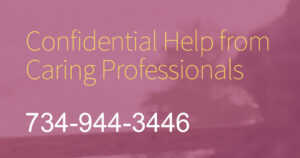If you have become aware of the need to seek outside help for yourself or a family member, you may be intimidated by the seemingly high cost of seeking personal counseling. In these times of economic stress, when all but our most immediate needs can be put on the back burner for lack of funds or the desire to save for a rainy day, the issue of cost becomes even more pertinent. However, much as leaving a cavity unfilled can later become a larger problem, perhaps even requiring a root canal, emotional issues left unresolved can grow into a situation requiring more extensive (and expensive) intervention. It’s often wiser to meet the problem head-on while still in the early stages. If the early stages have passed, there are still ways to get this help without losing your retirement savings. Some simple strategies can help you pay for the help while getting a bang for your buck.
To find out what counseling would cost you, the first place to start looking is your health insurance policy. Mental health benefits are provided by most major insurance companies. Your policy should tell you what benefits you have, and give you an idea of your out-of-pocket costs. Next you want to call your insurance company and get a list of counseling providers in your area. Much like doctors, you will probably pay less by going to a mental health professional who is “in-network” for your insurance company. While you are on the phone, it’s also a good idea to verify your benefits with an actual person.
Let’s say your insurance does not pay for counseling, or worse yet, have lost your job and insurance with it. Have courage! Many agencies have a sliding fee scale. You can get this information by calling your local Community Mental Health office. If you would rather seek out a specific therapist by referral or reputation, call their office and ask to speak briefly with the therapist on the phone before setting up an appointment. While on the phone, find out about any special fee rates they might offer. In fact, call a few different counselors to get an idea of who you think you might want to see, before paying a dime. Often the counselor who is the “best fit” for you can also be the most cost-effective, even if their fees are not discounted.
Continuing this proactive approach once you begin counseling can also result in significant cost savings, and ultimately make counseling affordable. For instance, go prepared for your first visit having thought about the specific information you want to share and the goals you would like to accomplish. Ask if the therapist assigns “homework” outside of the therapy hour. Doing recommended assignments can often shorten the course of treatment. Ask if you can call your therapist for a brief consult between sessions. Go prepared for every session, having thought through what you would like to share about the time in between sessions. In other words, make the most use of the time that you are paying for, and the fees….well, they won’t magically disappear, but you’ll certainly be getting your money’s worth.
This holiday season, consider giving the gift of counseling to yourself or a family member. Remember counseling could be the gift of a lifetime, or maybe even the gift of life itself. In many cities the Chamber of Commerce sells gift certificates for use at local member businesses. Call you local Chamber of Commerce to see if gift certificates are available for the practice where you want to seek help.

